Why Effective School Leaders “Listen To Learn”
Why School Leaders Need to “Listen to Learn” in 2024
School leadership is increasingly complex with a myriad of conflicting priorities, initiatives and daily challenges pulling headteachers in multiple directions. Now more than ever, developing the skill of being able to “listen to learn” can help navigate these complexities more effectively than just implementing your views and ideas. In a recent study published this month (Jan 2024) in the Harvard Business Review, Listening to learn had replaced Forcefulness as a leadership trait that executives valued.
Rather than reacting to pressures or imposing top-down solutions, listening to understand diverse community voices builds empathy, trust and shared ownership. This is essential for progress. This approach takes time but yields invaluable benefits by fostering real collaboration.
Building Rapport through Active Listening to Learn
Effective school leadership depends heavily on human relationships. Leaders must connect with students, staff, families and partners to form a cohesive learning community. Yet the leader’s role alone can feel isolating without efforts to listen across roles.
Studies show active listening – with eye contact, reflection and follow-up – makes others feel heard and respected. This improves morale while providing a sounding board and particularly after challenges like pandemic disruptions, Ofsted uncertainty, recruitment and retention issues (I could go on), taking time to listen rebuilds important rapport.
Valuing Diverse Perspectives
Our increasingly global and diverse world compels schools to embrace various approaches and ideas. Yet differences remain too easily dismissed without listening with an open mind. Assumptions impose unnecessary barriers.
Welcoming all voices, regardless of role, race or beliefs demonstrates a commitment to inclusion. Listening allows previously unheard views to emerge organically, sparking creativity that respects humanity in all its richness. This sets an example that lifts everyone, creativity is essential for schools to embrace in their workforce as it helps overcome the challenges we face but have no experience of, such as a pandemic, pupil mental health linked to social media etc.
Tapping Collective Wisdom
Complex problem-solving requires piecing together the often conflicting viewpoints you find in any staffroom like a jigsaw puzzle. No single person holds all answers and our blindspots limit solitary views. Collaborative dialogue allows collective intelligence to shine through, I would certainly have made more mistakes without bouncing ideas of colleagues.
Asking questions and listening with humility to staff, students and broader networks activates insight across roles and generations. This fuels innovative solutions better than top-down directives alone could achieve. Shared ownership of school improvement priorities promotes advocacy for plans among implementers too.
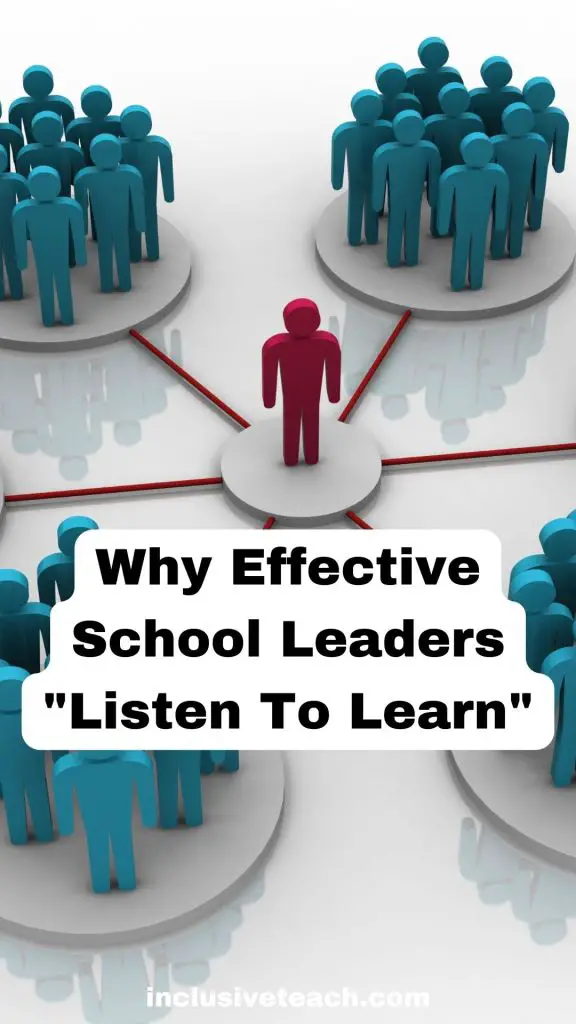
Methods for Deep Listening
To truly Listen to Learn, certain methods developed through communication training prove useful. Making eye contact, mirroring body language and avoiding distractions shows earnest interest. Summarising back in one’s own words prevents assumptions. Clarifying questions uncover nuance.
Above all listening without judgment, waiting your turn to contribute and focusing on understanding another’s perspective over one’s ready response fosters receptive dialogue. Relationships with the community should guide frequency and appropriate forums for input.
Listening to Students
Students deserve advocacy and insight they alone can offer on their educational experience. Yet youth voices, especially those with SLCN and SEN, face inherent difficulties being heard. Leaders must listen as intellectual equals deserving respect, asking open questions to draw them out.
Student councils or one-on-ones where students feel safe sharing freely without fear of repercussions surface invaluable insider views. Allowing raw emotion beside facts makes their reality visceral, indeed in a data-driven world of school leadership, students’ perceptions and anecdotes provide a refreshingly human element. Innovations then spring from this partnership rather than top-down directives alone.
Listening to Staff
Frontline teaching staff directly shape student success and well-being daily. Valuing educator insights means inviting open-ended sharing of challenges and ideas for change in safety. Leaders need to avoid defending present approaches, especially if they were their ideas, instead focus on understanding others.
Affirming meetings, an open door policy and optional mentorship foster the trusting relationships that cultivate candour. Leaders acknowledge small wins alongside larger goals to boost morale. Periodic climate surveys backed by action anonymously capture broader sentiment over time to maintain two-way understanding.
Listening to Families
Partnerships with supportive families strengthen community and learning gains alike. Yet barriers too often obstruct two-way communication between lives spent at school versus the home. Intentional listening therefore requires removing these hurdles where possible.
Surveys in family-friendly language invite anonymous sharing of student experiences that paint a textured picture. Focus groups and parent-teacher conferences facilitate deeper dialogue with priority on family priorities, culture and motivations to promote cultural relevancy and care in return. Online forums widen access but take a brave headteacher due to the potential for unmoderated comments.
Empathetic Reflection Strengthens Plans
Information alone does not an effective leader make without soul-searching reflection on how to apply diverse insights wisely. Transcripts from listening sessions reveal overarching themes woven from individual truths with empathy.
Honest self-reflection on personal blindspots and openness to unintended areas for growth strengthen plans. Implementation thenceforth involves all stakeholders through shared leadership to foster community ownership and better outcomes through cooperation over dictates.
Strengthening Schools Through Inclusiveness
Today’s complex challenges call for collective intelligence involving educators and families working interdependently as partners. Yet this partnership depends on open and equitable two-way communication nurtured by leaders who listen to understand each voice.
Schools serve not just academic development but social-emotional aspects of becoming responsible citizens in an increasingly intertwined world. Welcoming diversity and practising inclusion model the behaviours schools endeavour to instil.
Here are some specific examples of how school leaders can incorporate listening to learn into their decision-making processes:
- Hold regular town hall meetings where staff, students, parents and community members are invited to share feedback and suggestions in an open forum. Actively listen without judgment and follow up on common themes.
- Conduct one-on-one listening tours where the leader visits classrooms, extracurriculars and school events just to observe and chat informally with participants. Make notes to identify unsung issues or strengths.
- Distribute periodic 360-degree surveys asking how decisions are currently communicated and received. Customise questions based on school development criteria to gain varied perspectives then analyse qualitative data for insights.
- Establish a representative advisory council consisting of volunteers from cross-sections of the school community. Bring key decisions to the group for open consultation before finalising plans.
- Hold focus groups targeting traditionally underrepresented demographics to understand any perceptions of disconnection or marginalisation.
- Install suggestion boxes or online feedback forms allowing anonymous input. Promote transparency by sharing common themes and any adjustments to practice in response regularly i.e in newsletters or staff briefings.
- Consult student government, union representatives and parent-teacher associations on strategic planning initiatives in development stages before publication to gather contextual expertise.
The goal of these approaches is informed decision-making that considers diverse viewpoints to achieve buy-in and produce policies responsive to community needs and strengths.
Listen To Learn
Developing the skill of reflective and empathetic listening aligns leadership practices with the educational mission most effectively. The commitment to listen with an open mind and heart allows all school community members to bring their wisdom, and experience students and families through shared challenges. Truly listening to learn lays the groundwork for resilient and student-centred cultures of care, collaboration and continuous learning.

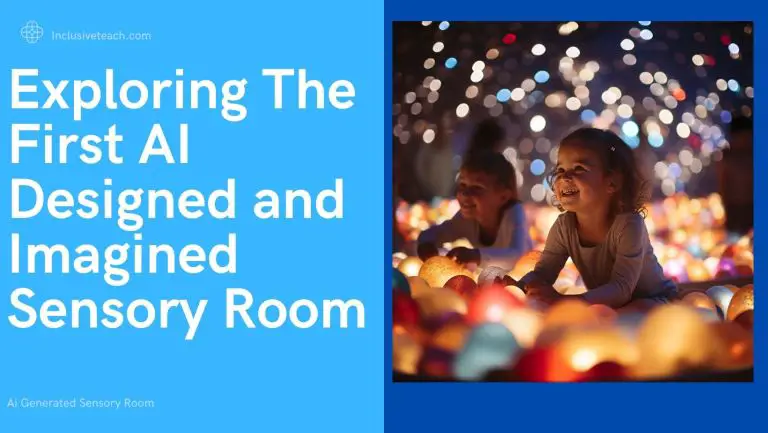
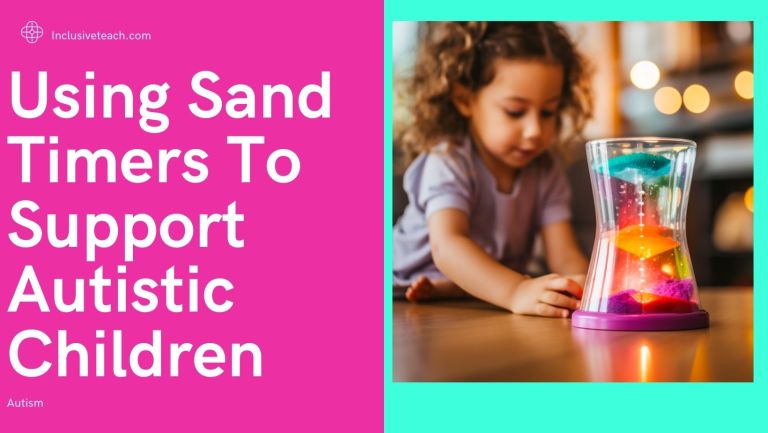

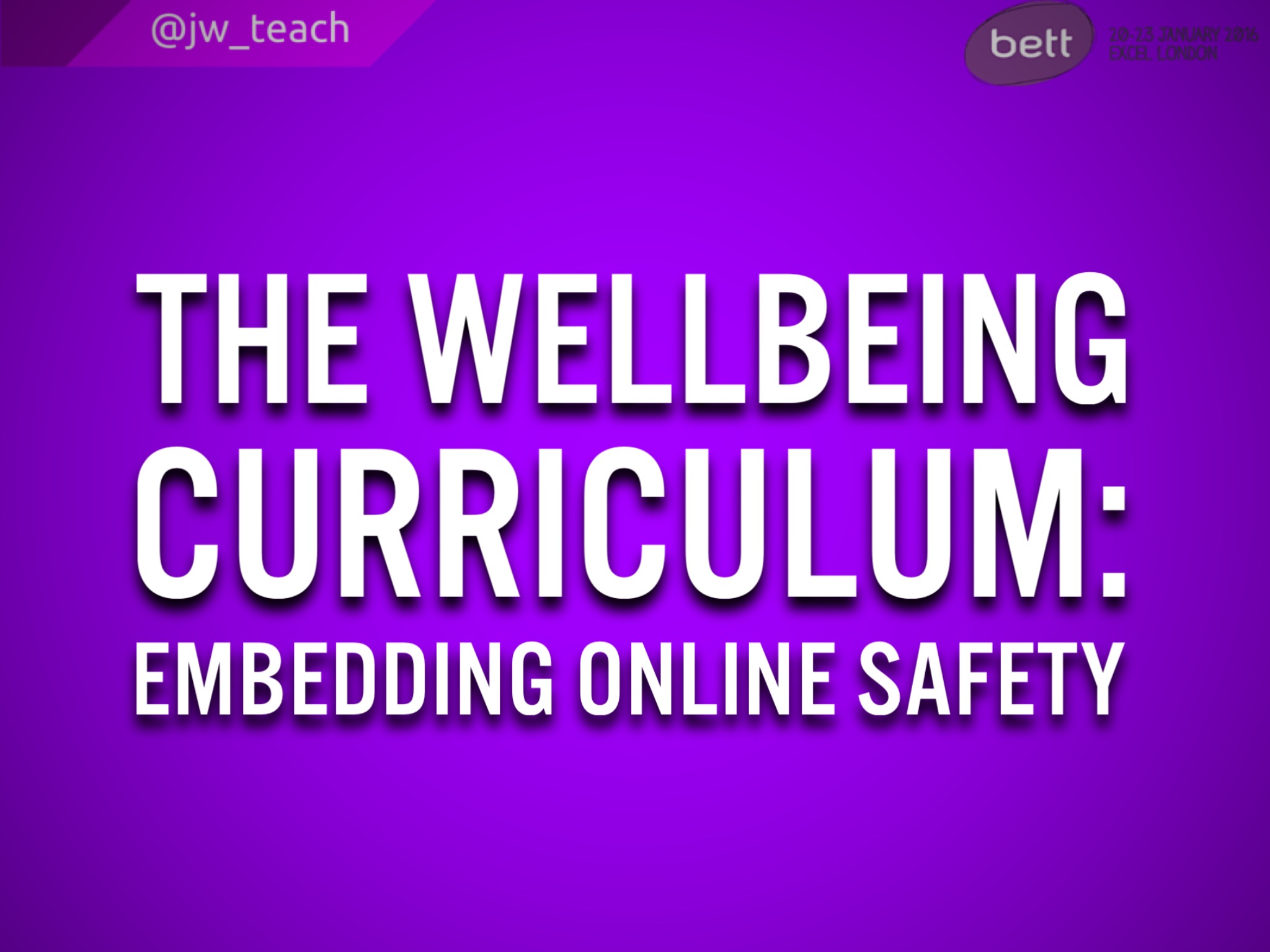
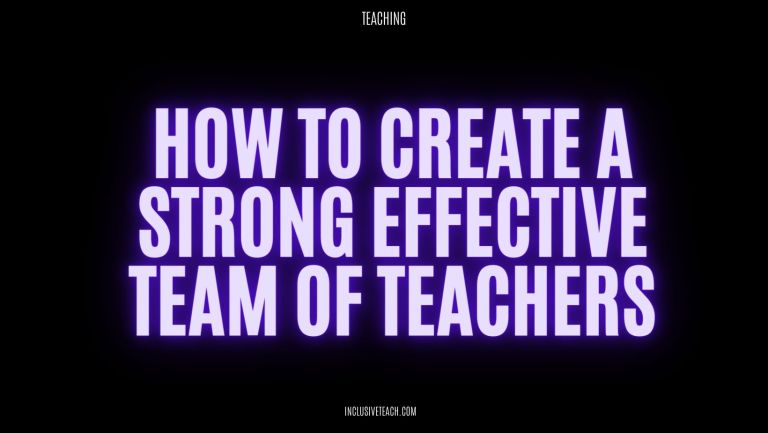

One Comment